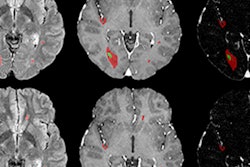Dear Artificial Intelligence Insider,
Artificial intelligence (AI) has shown considerable potential in radiology tasks that experience considerable inter- and intrareader variability. For example, a German research team recently reported that an artificial neural network could accurately provide automated quantitative assessment of multiple sclerosis burden on MRI exams.
In testing on clinical patients, the model yielded consistent and accurate performance for assessing volumetric lesion load. Consequently, the algorithm offers promise for streamlining clinical and research procedures, according to the researchers.
AI certainly has the potential to transform radiology and improve patient outcomes. Success, however, will rest on ethics and the "explainability" of algorithms, according to Ivana Bartoletti, a specialist in privacy and digital ethics. She shares her views on these two key issues in a new column for AuntMinnieEurope.com.
The new year arrived with big AI news, as a Google Health study generated many headlines over its findings that a deep-learning algorithm produced similar accuracy to human radiologists for detecting breast cancer. The study, which involved nearly 29,000 mammograms from the U.K. and U.S., also found that AI reduced the number of false positives and false negatives.
In addition, researchers from Sweden have determined that an AI algorithm that analyzes negative screening mammography exams yielded better predictions for a women's future risk of breast cancer than risk models based on breast density measurements. Interestingly, the density-based risk predictors also had a drop-off in performance for more aggressive cancers, but the deep learning-based model did not.
Radiologists must be fully prepared for the big leap forward brought on by the implementation of AI, said Prof. Valentin Sinitsyn, president of the Russian Society of Radiology, in a recent interview with the British Institute of Radiology.
In other news, Swiss investigators have created an AI algorithm that could become a valuable tool for detecting small, FDG-avid pulmonary nodules on oncologic PET/CT scans, potentially enabling more reproducible and objective image analysis.
Is there a story you'd like to see covered in the Artificial Intelligence Community? Please feel free to drop me a line.



















